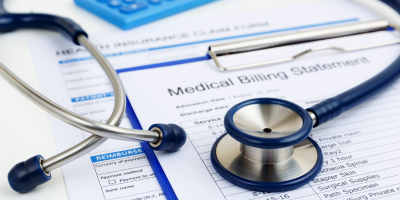Once you start a family, you want nothing more than to protect everyone in it. Ironically, one of the best ways to protect our family is by planning for the worst, and over half of American parents don’t even have a will in place. I know, I know – you are “going to do it eventually” but there’s no time like the present to take care of business. My challenge for you: get it done sooner rather than later. In order to help you do so, I’ve put together six financial and personal planning documents every family should definitely have, plus two you might want to consider.
Financial and Personal Planning Documents Every Family Should Have
While it’s not an all-inclusive list, the following items should be present in each and every household.
A Budget
If you aren’t already budgeting your monthly income, that’s a great place to start. Planning for the future and ensuring your family is taken care of long-term, even if something happens to you, is just one of the many reasons you should have your budget in order.
Your basic budget should list your assets (the things you have), liabilities (the amount you owe), income, and spending. It’s a good idea to put together all of your financial-life details, so you can quickly see where all of your money is. For most people, this includes bank accounts, credit cards, investments, retirement policies, mortgages, and insurance policies.
Not only will having this information in one place allow you to keep track of it more attentively, but it’ll allow you to create a better-informed will. It will also be a major help to the person dealing with your financial affairs after your death.
Tip: Grab my Family Budget Plan HERE and get started today!
A “Letter of Instruction”
This document traditionally includes details like your desired funeral arrangements and goes along with your will. Many planners now suggest that you include the log-in information for all of your important online accounts, and the location of important documents. If you have any online-only accounts (such as PayPal), you’ll want to include that information as well.
Once upon a time, you could easily find all of this information in someone’s desk drawer. In today’s online world, you just can’t do that anymore. Without a letter of instruction, these accounts could go unnoticed. Or, even worse, they could create increased frustration when they end up locked failed log-in attempts from your executor.
Beneficiary Designations
A beneficiary designation states who receives the funds of your investments after your death. Life insurance policies, retirement plans, and annuities are all types of programs that have beneficiary designations. While you named beneficiaries when you enrolled in those plans, it’s always a good idea to review them yearly, and especially whenever there is a big life change (death in the family, the addition of a child, etc.). Many people believe that simply having a will takes care of these decisions, but in fact, beneficiary designations typically trump the will.
Note: There are guidelines in place for many plans if you choose to name young children as beneficiaries. Often, they will not have access to the funds until they reach a specific age, usually 18 or 21. If you are concerned about the care of your child during that time period, it might be a good idea to name a custodian in your will to help your child manage the money and to ensure their needs are met in the meantime.
A Will
Your beneficiary designations do a lot of the “heavy lifting” in deciding where your monetary assets go after your death. A will, on the other hand, tells how you’d like all of your other assets to be distributed. It is also the document in which you name your executor (the person to handle your financial affairs upon your death), and your children’s guardian (who will raise them). You may also want to name a custodian to manage your child’s assets until they reach the age of majority and that may or may not be the same person as their guardian.
You might be tempted to name someone as executor of the will or guardian of your children without telling them, but that’s not a good practice. Be sure to discuss these roles with the person named and ensure they are comfortable with it. The last thing you want is for someone to be caught off guard or to turn down the role after the fact. You may also want to choose a “backup”, should your original choice be unable to take on the duty for some reason (age, finances, illness).
If you don’t name an executor and guardian, these decisions will be made according to the laws of your state. In that case, your children may even be cared for by the state until a guardian is named by the courts. Make the plans ahead of time so your loved ones know exactly what to expect.
Power of Attorney
Power of Attorney (POA) gives someone else the power to make health (sometimes) or financial decisions on your behalf should you be unable to. This power can be as broad or limited as you choose and will depend on your specific needs. When naming a Power of Attorney, you’ll want to ensure it is someone you trust completely as they may be making life-altering decisions on your behalf.
Do not think of the Power of Attorney as a replacement for a will or a living will. A will only dictates the dividing of your property and the care of your children. A POA makes critical health and/or financial decisions that were not planned for ahead of time.
For example, if you are in the middle of a house sale and you end up in the hospital in a coma, do you want that sale to go through? Your Power of Attorney will be able to sign on your behalf and make the sale final. Otherwise, you might lose the sale and end up dealing with financial implications when you finally are back to good health.
Pick someone you trust wholeheartedly, and don’t hesitate to change it down the line if you feel you need to.
A Living Will
While a will tells your loved ones how you want your assets to be dealt with after you die, a living will allows you to make healthcare decisions for yourself in advance, provided you aren’t able to make them yourself. A living will can include a variety of things, including end-of-life care and even specific medical procedures you do (or do not) want.
When you have a living will, your family does not have to make major health-decisions for you when they are already stressed.
A Medical Power of Attorney
Similar to a living will, medical power of attorney allows you to designate a single person to make health decisions on your behalf if you are not able to do so yourself. Often you can include this within your Power of Attorney, but having a separate document allows you to place it on file with all of your medical providers and take it with you when you undergo medical procedures.
There’s nothing like knowing who will be able to speak for you when you can’t speak for yourself. On the flip side of that, the person sitting in the waiting room has the ability to fight for your needs knowing they are legally charged with doing so.
Insurance Families Should Consider
In addition to the documents mentioned above, it’s a good idea to consider the implications of insurance for your family’s long-term wellbeing.
Life Insurance
Life insurance exists to protect the people you leave behind from financial harm. If you died, could your spouse maintain your home and financial obligations without struggle? If you are a single parent, who would provide for your children? How much insurance you need will vary, but the general recommendation is enough to become debt-free and to replace your income.
The younger and healthier you are, the easier and cheaper it usually is to get life insurance. Many employers offer a certain amount of life insurance without proof of health, though, so make sure to take the amount offered, if it fits into your long-term plans.
Note: Even though they are young and healthy, you do not need to run out and get your kids life insurance. One of the few exceptions for this, though, is if you fear a potential hereditary illness will present itself in your child as they age. If a failed medical test could make them uninsurable for their own family’s security later on, then it may be something you want to consider while they are young.
Disability Insurance
If you are working and your income is necessary for your family’s financial well-being, you should consider disability insurance. This type of insurance pays out a percentage of your income if you become too ill or injured to work. Even part-time workers should weigh the pros and cons of disability insurance. The cost might just make up for lost income and alleviate the stress that comes along with a major illness or injury.
If you have disability coverage through work, review the terms to ensure it is enough. For example, you may have long-term disability, but not short-term disability insurance. There’s nothing worse than thinking you have it, only to find out – when it’s most needed – that you don’t.
Your Financial and Personal Planning Documents
So, I know… planning for your own death or a devastating workplace accident is not exactly a fun thing to do. There are big decisions to make and those decisions require some serious conversations. The time to have these conversations, though, is when you are calm, healthy and not in the depths of panic or grief.
Do you have your financial and personal planning documents in order? My challenge to you: get it done and do it sooner rather than later.



